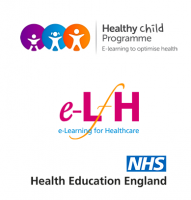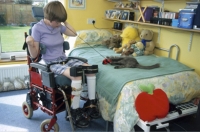Sex and Health Risk Behaviour in Long-term Conditions and Disability for GP/Family Medicine professionals



This session addresses the impact of having a long-term condition and disability on sexuality and health risk behaviours during adolescence.
Learning Objectives
By the end of this session you will be able to:
- Describe the implications of having a long-term condition or disability for sexual function and health
- Describe the effects of having a long-term condition or disability on health risk behaviours and vice-versa
Young people with long-term conditions and disabilities are young people first and foremost. The wider implications of their conditions, for areas such as sexual and reproductive health, should be a routine part of healthcare. Furthermore, adolescence is a time when many behaviours associated with a health risk commence, including sexual behaviours, which may both influence and be influenced by a long-term condition and disability.
Before commencing this sessions you should complete the following AH sessions:
- 02 001 Healthy Development in Adolescence (401-0004)
- 07 002 Practical Approaches to Improving Adherence and Concordance (401-0033)
- 05 001 Health Promotion in Young People (401-0023)
- 09 001 Sexual Behaviour in Adolescence (401-0038)
Dr Janet E McDonagh is a Clinical Senior Lecturer in Paediatric and Adolescent Rheumatology at the Centre for Musculoskeletal Research at University of Manchester and Honorary Consultant paediatric and adolescent Rheumatologist at Royal Manchester Children’s Hospital.
Her main clinical and research interests are in adolescent health and transitional care. She has a particular interest in models of care for adolescents with chronic conditions that support young people’s emerging capacity for self-management, that ensure appropriate health risk assessment, support transition to adult health care, adherence to treatment guidelines and engagement with other health care services.
She is a member of the Barbara Ansell National Network for Adolescent Rheumatology, convenor of the Royal College of Paediatrics and Child Health Young Person’s Special Interest Group, co-chair of the Royal College of Physicians Young Adult and Adolescent strategy group and is on the advisory council of the Association for Young People’s Health.
Dr McDonagh is also involved in the development of training for health professionals in adolescent medicine including her role as a trainer in the European Teaching Effective Adolescent Care and Health initiative


Clinically active with interests in adolescent health as Adolescent lead for development of adolescent services in UHCW and as a Community Paediatrician caring for teenagers with severe learning disability in the community setting and working with colleagues in the Learning Disability setting to facilitate transition. Member of the RCPCH Young people’s Health Special Interest Group.
- Communication Impairments Part 4: Autistic Spectru...
- Posted By eIntegrity Healthcare e-Learning
- Posted Date: 2024-12-23
- Location:Online
- This session is the last of four that looks at different speech, language and communication impairme...
- Communication Impairments Part 3: Cleft Palate, He...
- Posted By eIntegrity Healthcare e-Learning
- Posted Date: 2024-12-23
- Location:Online
- This session is the third of four which describe different speech, language and communication impair...
- Communication Impairments Part 2: Specific Speech ...
- Posted By eIntegrity Healthcare e-Learning
- Posted Date: 2024-12-23
- Location:Online
- This session is about speech sound disorder (SSD). It describes the characteristics associated with ...
- Communication Impairments Part 1: Late-talking Tod...
- Posted By eIntegrity Healthcare e-Learning
- Posted Date: 2024-12-23
- Location:Online
- This session is the first of four which describe different speech, language and communication impair...
- Typical Development Part 2: First Words and Early ...
- Posted By eIntegrity Healthcare e-Learning
- Posted Date: 2024-12-23
- Location:Online
- This session gives an overview of the main aspects of how language typically develops in children. I...








